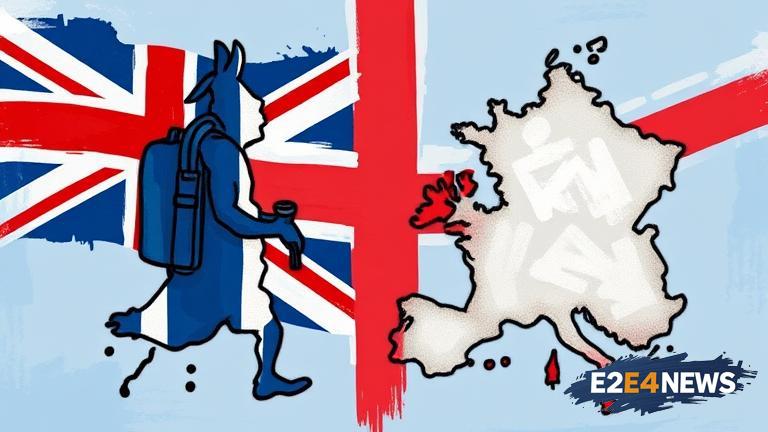The UK and France have officially implemented a new treaty designed to tackle the ongoing issue of cross-channel migrants. This treaty marks a significant step forward in the two countries’ efforts to address the crisis, which has seen thousands of migrants attempt to cross the English Channel in recent years. The treaty, which was signed in November 2022, outlines a range of measures aimed at reducing the number of migrants making the perilous journey. One of the key provisions of the treaty is the establishment of a new joint intelligence unit, which will work to disrupt and dismantle people-smuggling networks operating in the region. The unit will be staffed by officials from both countries and will work closely with law enforcement agencies to identify and prosecute those involved in migrant smuggling. In addition to the joint intelligence unit, the treaty also includes provisions for increased cooperation on border security, including the sharing of intelligence and best practices. The UK and France have also agreed to work together to provide support and assistance to migrants who are intercepted at sea, including providing them with food, water, and medical care. The treaty has been welcomed by politicians and law enforcement officials on both sides of the Channel, who see it as a major step forward in the fight against migrant smuggling. However, some critics have raised concerns about the potential impact of the treaty on the human rights of migrants, and have called for greater transparency and accountability in the implementation of the agreement. Despite these concerns, the treaty is seen as a significant breakthrough in the efforts to address the cross-channel migrant crisis, and is expected to have a major impact on the number of migrants attempting to make the journey in the coming months. The crisis has been a major issue for both the UK and France in recent years, with thousands of migrants attempting to cross the Channel in small boats and inflatable dinghies. Many of these migrants are fleeing war, persecution, or poverty in their home countries, and are seeking a safer and more prosperous life in Europe. However, the journey is extremely dangerous, and many migrants have lost their lives attempting to cross the Channel. The UK and France have both faced criticism for their handling of the crisis, with some accusing them of not doing enough to protect the human rights of migrants. The new treaty is seen as an attempt to address these criticisms, and to provide a more comprehensive and coordinated response to the crisis. The treaty is also expected to have a major impact on the people-smuggling networks that operate in the region, which have made millions of pounds from the desperation of migrants. These networks are often linked to organized crime groups, and have been responsible for the deaths of many migrants who have attempted to cross the Channel. By disrupting and dismantling these networks, the UK and France hope to reduce the number of migrants attempting to make the journey, and to prevent further loss of life. The treaty is a significant development in the ongoing efforts to address the cross-channel migrant crisis, and is expected to have a major impact on the region in the coming months. The UK and France will continue to work together to implement the treaty, and to provide support and assistance to migrants who are intercepted at sea. The treaty is also expected to have a major impact on the wider issue of migration in Europe, and is seen as a model for other countries to follow in their efforts to address the crisis. The implementation of the treaty will be closely monitored by politicians, law enforcement officials, and human rights groups, who will be watching to see whether it has a significant impact on the number of migrants attempting to cross the Channel. The treaty is a major step forward in the efforts to address the cross-channel migrant crisis, and is expected to have a lasting impact on the region.





